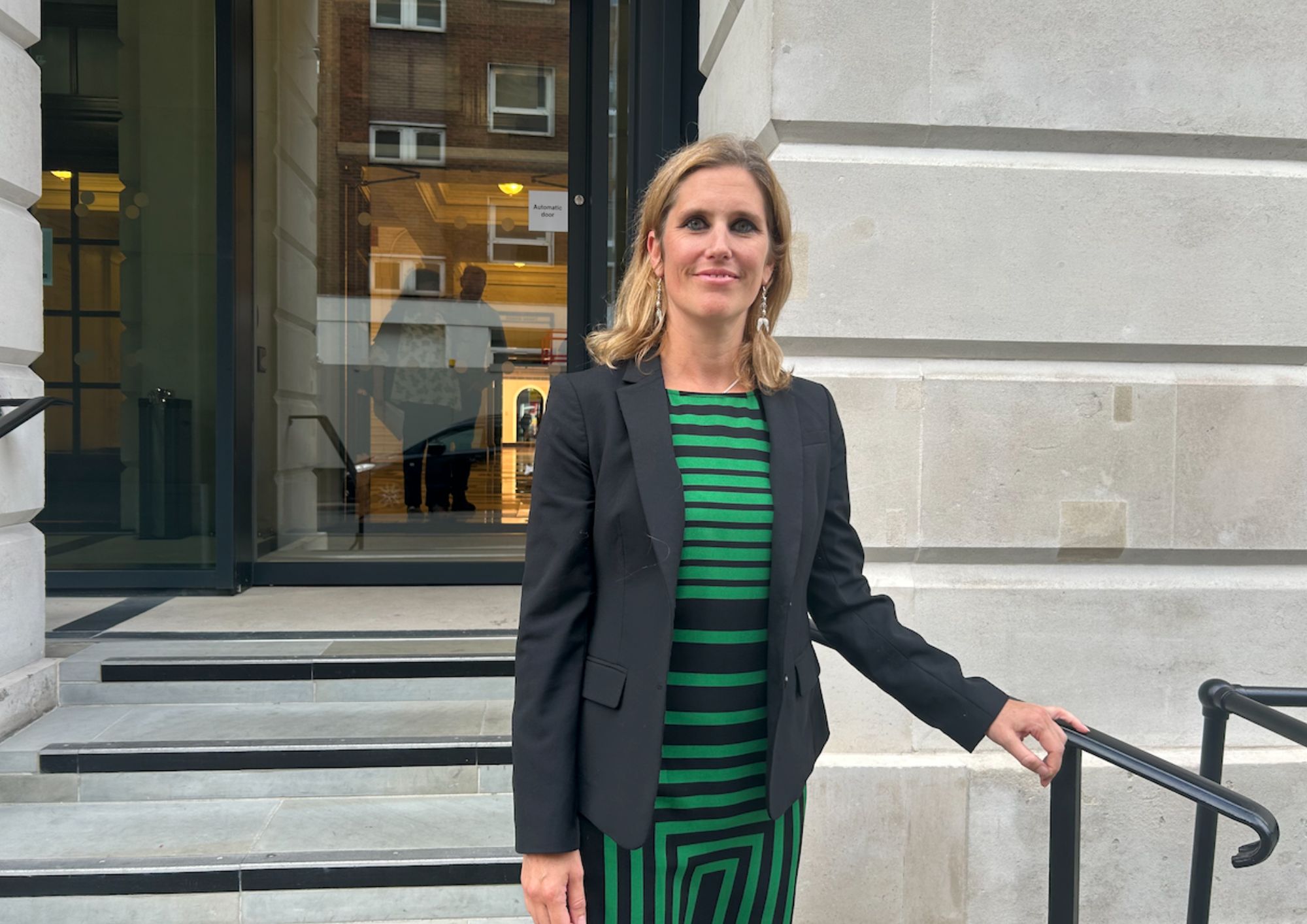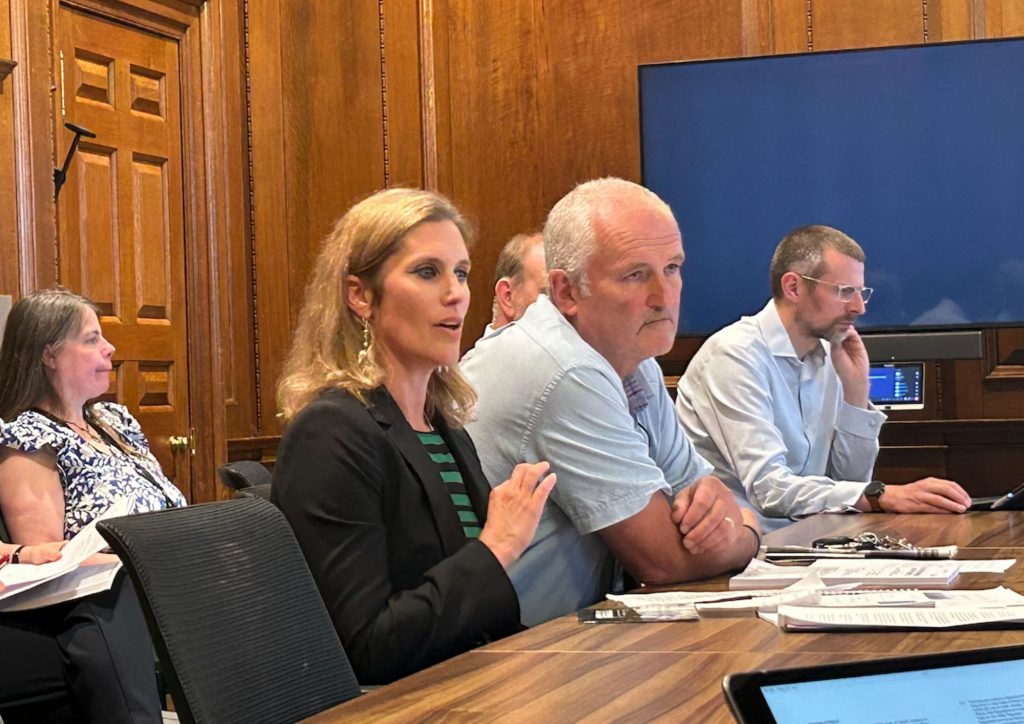‘We want police patrols, not locked up parks,’ campaigner tells council
What do you think about locking up the park? Email letters@camdennewjournal.co.uk
Friday, 14th July 2023 — By Anna Lamche

Amy McKeown is against Primrose Hill being locked up at night for three nights a week
PARK bosses and councillors were told that the decision to lock up Primrose Hill on summer nights had followed “scare tactics” over the extent of crime in the neighbourhood.
Amy McKeown, part of a group which opposes gates at the beauty spot, told a cross-party environment committee that any problems with bad behaviour could be dealt with by regular patrols.
She also questioned the validity of the Royal Parks’ research into what residents wanted.
“The fundamental issue has always been that the area needs more policing, resourcing and more visible police patrols,” Ms McKeown said. “Visible regular patrols would negate the need to gate or close the park.”
Earlier this year, the same committee heard from residents who do want the park to be locked up at night.
The issue arose during the Covid lockdown when they said the park had been used as an alternative to shut-down nightclubs, and that rowdy and sometimes criminal behaviour was spilling out onto quiet residential streets.
Neither the anti-gates group nor the Royal Parks were at the previous meeting, so both appeared on Monday evening to make their case.
In May, the Royal Parks announced that it would be shutting the Hill from 10pm to 6am on Fridays, Saturdays and Sundays, following a survey of park users.

The CNJ was the only newspaper present at the meeting
The committee established that just under 4 per cent of the 37,000 people responded to the survey put through their doors.
“Canvassing on the Hill took place during daylight hours, thereby directly excluding those affected by the nightly closures,” Ms McKeown said.
She added that some people who supported the closure were employing “scare tactics”, spreading rumours about serious crime in Primrose Hill that were not supported by the crime statistics.
Inspector Nick McLaughlin, a Metropolitan Police officer who helps police Primrose Hill, said the area was not considered a “crime hotspot”, adding: “We do have a number of repeat callers… my instinct would be, and has been for the last five years, that this has been largely a noise issue as opposed to a crime issue.
“It isn’t a crime hotspot, but it will be a place that generates noise, and I suppose one of the questions that people have to consider is: is it reasonable to expect a large open space near a very popular iconic location to be sterile at night and for it to be completely quiet? And I suspect London as a whole is never quiet.”
Appearing via video link, Royal Parks chief executive Andrew Scattergood apologised for failing to attend the previous meeting, and said Royal Parks had tried to take a “balanced view” of the issue.
He defended Royal Parks’ decision to install gates, describing it as a “proportionate approach” given the “noise issues”.
He promised to keep gates “under review” once they were installed.
The Royal Parks will now apply for planning permission to erect permanent gates around the park. Some campaigners are calling for councillors to reject this application.
Belsize Park councillor Matthew Kirk branded the failure of the Royal Parks to attend the previous meeting as “a grotesque snub”.
“One day before the announcement was made, you had an invitation to come to the council committee exploring this issue, and you didn’t because this decision was already made,” he said.
At the meeting in May, Eleanor Sturdy, the chair of the Primrose Hill Safer Neighbourhood Panel, a supporter of the locked gates, told the committee: “The park has developed a reputation. It is not as loud and noisy as the hot summer nights of 2020 when the raving and Glastonbury-type stuff was going on up there. It is nastier.
“What we think is happening is teenagers, who are more than welcome to celebrate exams and relax and have fun up there, are attracting the drug dealers, who set up very large sound systems to create a party, and then the streets around are used as a parking area for the drugs.”

